The neighbourhood at Freston Road, acquired by the Greater London Council (GLC), had been allowed to deteriorate into such a state of disrepair that tenants had to be rehoused to nearby accommodation such as Trellick and Grenfell towers, effectively dismantling a community. But by the mid-1970s the area had become home to a new community; a bohemian mixture of artists, writers, musicians and drug addicts. The residents’ circumstances varied. Some gravitated to the area to keep costs low while they honed their skills, for others it was the ideal of communal life. Some had no choice. The winters were hard, resources were scarce, and police protection was a foreign concept.
Among the residents were social activist Nicholas Albery and actor David Rappaport. The playwright Heathcote Williams, a close friend of Nicholas’, lived in Notting Hill.
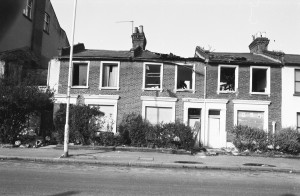
Owners of properties in the area would often destroy their own roofs to deter squatters.
In 1977, the Greater London Council (GLC) announced plans to redevelop the area, the details of which are captured in an edition of the Tribal Messenger. As former resident Tony Sleep puts it:
“The GLC decided that it was intolerable having 120 people living in these damp old dirty houses and it would be a much better idea to knock them all down and make us homeless…”
Inspired by a previous visit to Christiania, Copenhagen, Nicholas Albery put forward the notion of seceeding from the United Kingdom, establishing the Free & Independent Republic of Frestonia. Albery chaired a meeting attended by 200 locals. A referendum was held on Sunday, October 30th with unanimous support for secession. Citing a legal loophole, the residents took the collective surname of Bramley, in an effort to support their request to be rehoused as a single family. An application for membership of the United Nations, was submitted, opening:
“We the Free Independent Republic of Frestonia, herewith apply for full membership of the United Nations, with autonomous nation status…”
Within the application were detailed plans for an independent nation, signed by the Minister of State for Foreign Affairs, David Rappaport-Bramley. The stunt was picked up by the media, Rappaport-Bramley made radio and tv appearances, and before long the world was watching.
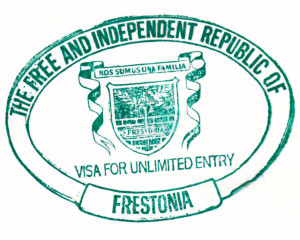
Getting stamped with a visa for unlimited entry was a highpoint of any tourist trip to Frestonia.
The Republic issued its own postage stamps, visiting tourists could have their passports stamped with the official Frestonian visa stamp and pick up a copy of the national newspaper, the Tribal Messenger. The National Theatre presented Heathcote Williams’ play The Immortalist and The Clash recorded parts of Combat Rock at Ear Studios in the People’s Hall on Olaf Street.
The application even announced the intention to:
“generate our own power supply… [and] our own national radio station, which will in no way interfere with the broadcasts of neighbouring nations.”
The international media were captivated, with coverage from the UK current affairs TV show, Nationwide, and attention from news teams across the United Kingdom, United States, Canada, Spain, Denmark and Japan. The neighbouring UK government were forced to respond and the enigmatic leader Nicholas Exelby-Bramley (Albery’s pseudonym) received letters from Sir Geoffrey Howe MP, and Horace Cutler, leader of the GLC.
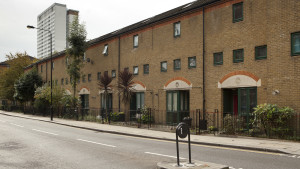
The Bramleys Housing Co-operative worked with the Notting Hill Housing Trust to build quality homes for the residents who wished to stay.
The furore forced the GLC to negotiate and eventually the Bramleys Housing Co-operative was formed, assisted by local lawyer Martin Sherwood, giving the residents a voice in development plans for the area. The squatters-turned-separatists had fought hard and won.
Although concessions were made, the site was redeveloped to make safe, livable homes for the residents, many of which live there to this day, along with the generations that followed.
What became of the Republic? The United Nations never responded to the application, nor was the notion ever officially dismissed. The Republic of Frestonia is as much a reality now as it was then. And the spirit in which it was formed serves as a reminder that, faced with oppression, anything can happen when we work together as a family.
After all, nos sumus una familia.






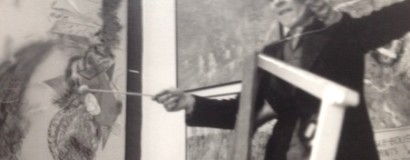
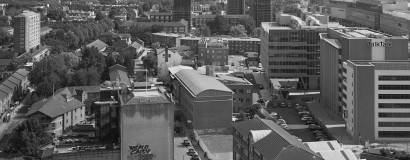
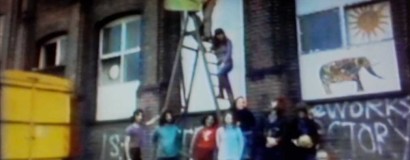
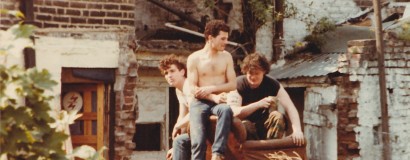
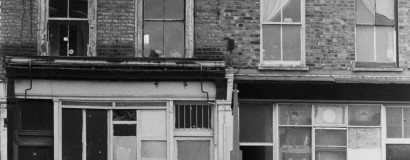
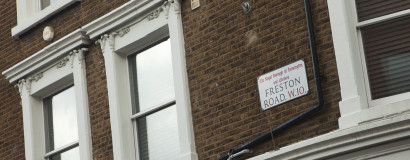






















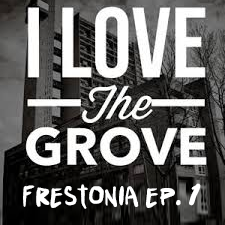
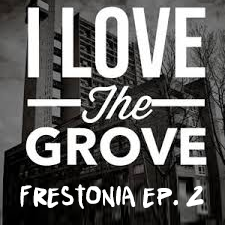


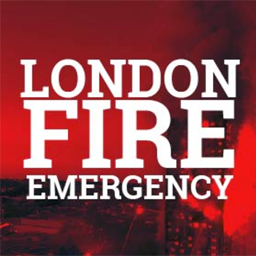
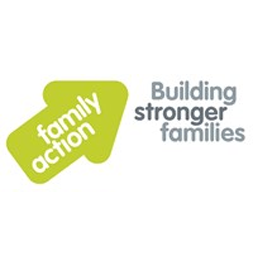
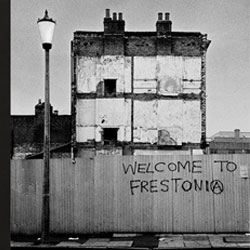
Recent Comments